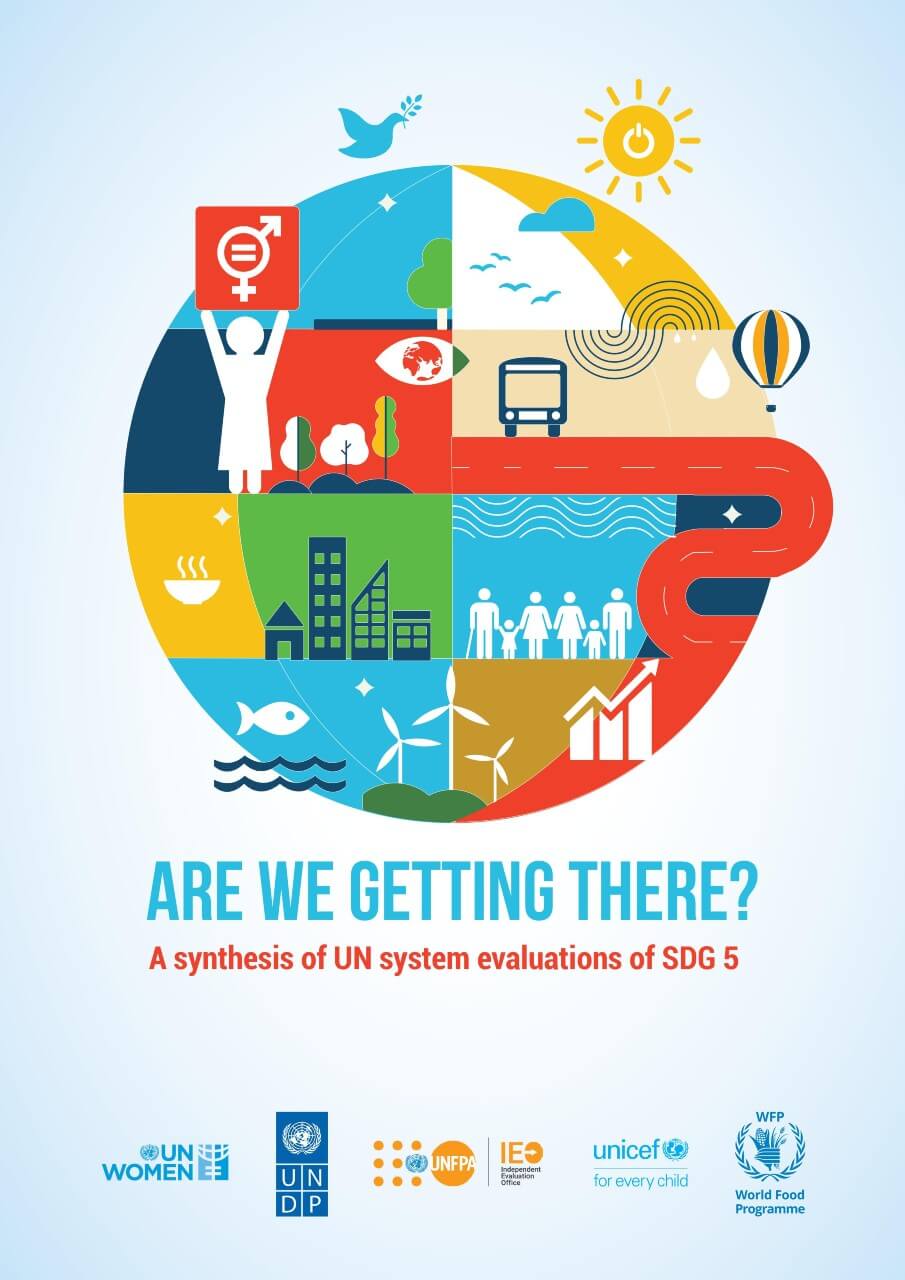Are we getting there? A synthesis of UN system evaluations of SDG 5
As we cross the midpoint of the 2030 Agenda for Sustainable Development and amidst stalled progress on achieving gender equality, the independent evaluation offices of UN Women, UNDP, UNFPA, UNICEF, and WFP saw an opportunity to conduct an inter-agency synthesis of UN system evaluations related to Sustainable Development Goal 5 (SDG 5, gender equality). In total, 295 evaluations were synthesized to generate evidence on what is working, evidence gaps, and lessons to advance SDG 5.
Key findings highlighted the United Nations’ contribution towards advancing gender-responsive legislation; the effectiveness of integrated and holistic programming; the use of knowledge, data and research to support advocacy; technical support and capacity strengthening; and the centrality of civil society partners in achieving SDG 5.
At the same time, operationalizing the “leave no one behind” principle was a noted challenge, more sustained prioritization of gender in humanitarian situations is required, and there is need for stronger monitoring and evaluation to assess contribution towards gender equality outcomes. Harmful social norms and financing for gender equality were commonly cited as significant barrier to progress. Government commitment and institutional readiness were key enablers of progress.
The synthesis identifies key thematic and methodological evidence gaps. Opportunities to address these gaps through further evaluation, additional syntheses, and improvements to monitoring and evaluation methodologies are offered. The results are intended to serve as a catalyst for action by providing policymakers, programme implementers, donors, and UN agencies with a series of implications to guide next steps and the evidence needed to champion and advance their collective work to accelerate progress on SDG 5.










